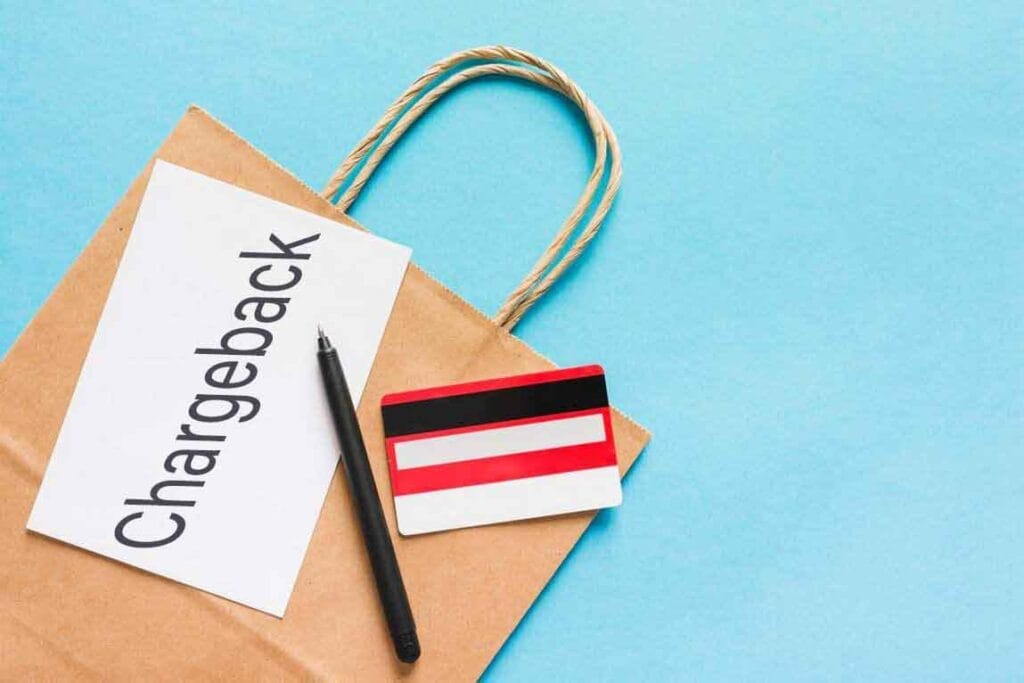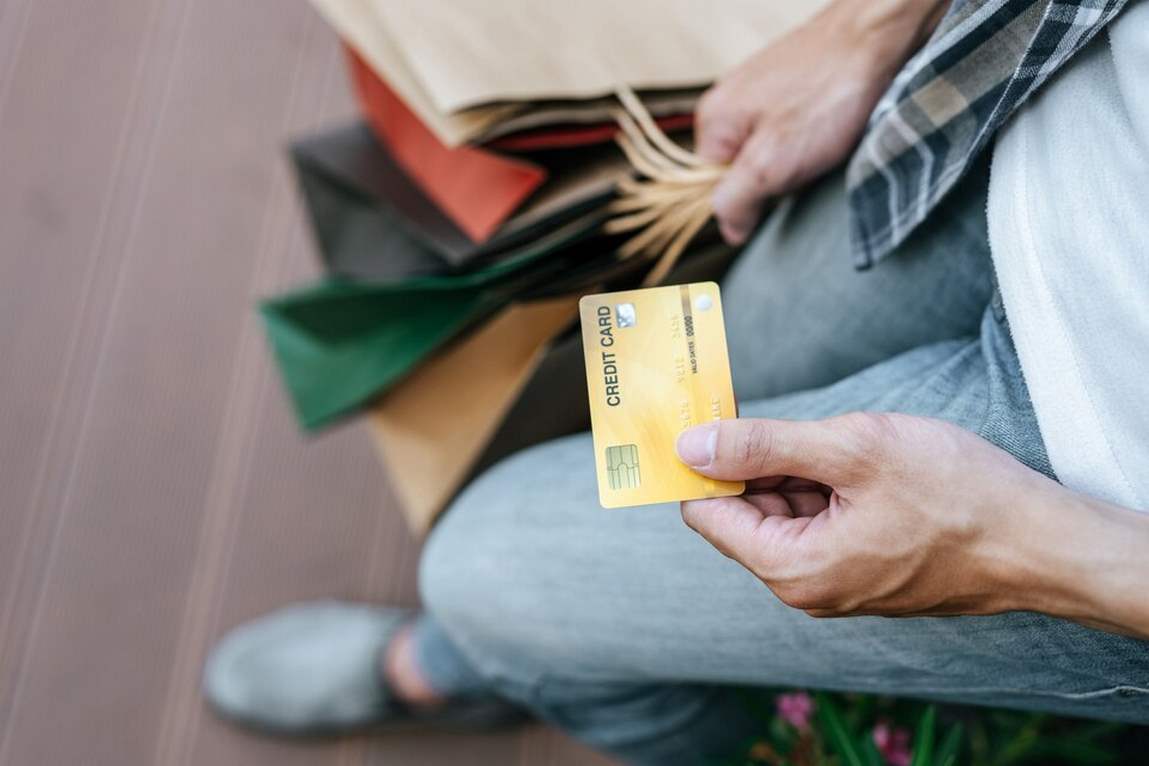Welcome to the enigmatic world of chargebacks, where financial intrigue meets customer satisfaction. Imagine your credit card bill as a labyrinth, and chargebacks as the secret passageways that lead you out when things go awry. Intrigued? You should be! Chargebacks are more than just financial jargon; they’re a crucial safety net in the tumultuous world of consumer transactions. So, buckle up as we embark on this journey through the labyrinthine depths of chargebacks and discover their true essence.

What’s a Chargeback Anyway? Unpacking the Mystery
At its core, a chargeback is a consumer protection mechanism that allows you to dispute a credit card transaction and get your money back if things go south. Think of it as your financial superhero, swooping in to save the day when a merchant’s product or service fails to meet expectations💸or worse, when it vanishes into thin air. It’s not just a refund; it’s a formal process with rules and timelines that make it a bit of a financial legal drama.
Why Should You Care About Chargebacks? The Hidden Benefits
The Safety Net for Consumers
Why should you care? Besides being a safety net, chargebacks can be your ticket to a refund in situations where standard returns fall short. They offer a structured way to challenge unauthorized transactions and help protect against fraud. Essentially, they are the unsung heroes of consumer rights, ensuring that your hard-earned cash isn’t lost in the chaotic sea of online shopping and dodgy deals.

The Basics of Chargebacks: A Primer
What Is a Credit Card Chargeback? The Lowdown
A credit card chargeback is essentially a reversal of a transaction initiated by your card issuer. It happens when you dispute a charge, and your bank investigates it, deciding whether you should get your money back. Picture it as a financial do-over; you hit the reset button on a transaction that’s gone awry.
How It Works: The Step-by-Step Saga of Chargebacks
- Discovery: You spot a charge on your statement that doesn’t sit right.
- Dispute: You file a complaint with your card issuer, detailing why the transaction is problematic.
- Investigation: The bank investigates, contacting the merchant and reviewing evidence.
- Resolution: Based on the investigation, the bank decides whether to refund your money or uphold the charge.
It’s a bit like a courtroom drama, with the bank playing the role of the judge and the merchant as the defendant.

The Chargeback Lifecycle: From Dispute to Resolution
Initiating a Chargeback: Your First Line of Defense
The initiation phase is where you kick off the chargeback process. You’ll need to contact your bank or credit card company and provide details about the transaction and your reasons for disputing it. This is your opportunity to present your case and make sure the bank understands why you believe the charge should be reversed.
The Merchant’s Role: How Businesses React to Chargebacks
Once you’ve initiated a chargeback, the merchant gets involved. They’re notified of the dispute and given a chance to provide their side of the story. Merchants often scramble to gather evidence to contest the chargeback and prove that the transaction was legitimate. It’s a bit of a financial tug-of-war where both sides present their arguments to the bank.
The Bank’s Involvement: The Unsung Mediator
The bank, or card issuer, acts as the mediator in this financial showdown. They review the evidence from both sides and make a determination. Their role is crucial, as they balance the interests of both the consumer and the merchant, aiming for a fair resolution based on the evidence presented.

Resolution Time: How Long Does This Drama Last?
The chargeback process isn’t an overnight affair. It typically takes anywhere from a few weeks to several months to reach a resolution. Factors like the complexity of the dispute and the responsiveness of the merchant can influence the timeline. Patience is key, as the resolution process can sometimes resemble a slow-moving courtroom drama.
Chargeback Scenarios: Real-Life Examples and Case Studies
The Tale of the Dodgy Online Purchase
Picture this: You buy a gizmo online, but it arrives broken or never shows up at all. In this scenario, a chargeback can be your salvation, allowing you to dispute the charge and seek a refund. It’s a real-world example of how chargebacks serve as a safeguard against unscrupulous sellers and faulty products.
When Subscriptions Go Rogue: Monthly Mayhem
Imagine subscribing to a service that promises one thing but delivers another💸or worse, keeps charging you after you’ve canceled. Chargebacks can help you reclaim those unauthorized charges, making them a valuable tool for managing subscription-related headaches.
Travel Troubles: The Vacation That Wasn’t
You book a dream vacation, but the hotel overbooks, or the flight gets canceled. Chargebacks can come to the rescue when travel plans fall through, providing a way to dispute charges for services that were not rendered as expected.
The Chargeback Process Unveiled
The Paper Trail: What Documentation Is Required?
To successfully navigate a chargeback, you’ll need to provide a paper trail of documentation. This includes receipts, communication with the merchant, and any other evidence supporting your claim. The more thorough your documentation, the stronger your case will be.
How to Craft a Winning Chargeback Claim
Crafting a winning chargeback claim involves clearly explaining the issue, providing relevant evidence, and adhering to your card issuer’s procedures. Be concise, factual, and organized in your approach to increase the likelihood of a favorable outcome.
The Role of Evidence: Why Your Paper Trail Matters
Evidence is the backbone of a successful chargeback claim. It helps substantiate your claim and demonstrates that you have a valid reason for disputing the transaction. Without solid evidence, your chargeback claim might falter in the face of scrutiny.
Chargeback Fees and Costs: What’s the Damage?
Understanding Chargeback Fees: A Cost Breakdown
Chargebacks can come with fees, typically charged to merchants but sometimes passed on to consumers. Understanding these fees helps you grasp the financial implications of initiating a chargeback and prepares you for any potential costs.
Hidden Costs: How Chargebacks Impact Businesses
For businesses, chargebacks can be costly💸not just in terms of fees but also in lost revenue and administrative burdens. High chargeback rates can also affect a merchant’s reputation and their ability to accept credit card payments in the future.
Preventing Chargebacks: Tips for Consumers and Merchants
For Consumers: How to Avoid the Need for a Chargeback
To minimize the need for chargebacks, ensure you thoroughly research merchants before making a purchase, keep detailed records of transactions, and communicate promptly with merchants if issues arise. A proactive approach can often resolve disputes before they escalate.
For Merchants: Best Practices to Minimize Chargebacks
Merchants can reduce chargebacks by implementing robust fraud prevention measures, maintaining clear communication with customers, and ensuring accurate and timely delivery of products and services. Transparent policies and excellent customer service can also help mitigate chargeback risks.
Legal and Financial Implications
Chargebacks and Your Credit Score: The Ripple Effect
While chargebacks themselves don’t typically impact your credit score, excessive chargebacks or disputes can indicate potential issues with your financial behavior. This, in turn, could lead to closer scrutiny of your credit activities and affect your creditworthiness indirectly.
Legal Ramifications: What Happens If You Abuse Chargebacks?
Abusing the chargeback system💸such as filing false claims💸can have serious legal and financial consequences. Merchants and card issuers may take legal action against individuals who engage in fraudulent chargeback activities, leading to potential legal troubles and financial penalties.
Future Trends: What’s Next for Chargebacks?
Emerging Trends: How Technology Is Shaping Chargebacks
As technology evolves, so does the chargeback process. Innovations in fraud detection, blockchain technology, and digital payment systems are reshaping how chargebacks are handled, making the process more efficient and secure.
Predictions: What to Expect in the Chargeback World
Looking ahead, we can expect chargeback trends to continue evolving with advancements in technology and changes in consumer behavior. The future may bring more automated solutions, greater transparency, and enhanced protection measures for both consumers and merchants.
BOTTOM LINE
To sum it all up, chargebacks are a powerful tool in the realm of consumer protection, offering a structured way to dispute transactions and seek refunds. By understanding the chargeback process, knowing how to navigate it, and implementing preventive measures, you can make the most of this financial safety net. Keep this cheat sheet handy to ensure you’re well-prepared for any chargeback scenarios that come your way.
Frequently Asked Questions (FAQs)
Are credit card chargebacks illegal?
No, credit card chargebacks are not illegal. They are a legitimate process provided by credit card companies to protect consumers from fraud or unresolved disputes with merchants.
Is a chargeback serious?
A chargeback can be serious, particularly for merchants. It involves reversing a transaction and can sometimes lead to additional fees or penalties, especially if it happens frequently.
Do I have to pay back a chargeback?
As a consumer, you typically do not have to pay back a chargeback. Once a chargeback is approved, the funds are returned to your account, and the merchant absorbs the cost.
Who loses money when you dispute a charge?
The merchant usually loses money when you dispute a charge. They not only lose the transaction amount but may also face additional fees and potential penalties.
Is chargeback a refund?
A chargeback is similar to a refund, but it’s initiated through the credit card issuer. It involves reversing a transaction due to issues like fraud, dissatisfaction, or billing errors.
Does chargeback hurt credit score?
A chargeback itself does not directly hurt your credit score. However, if the dispute process leads to unresolved issues with your account or unpaid balances, it could indirectly affect your credit.
Why do companies hate chargebacks?
Companies dislike chargebacks because they result in financial loss, potential penalties, and administrative headaches. Frequent chargebacks can also impact a merchant’s relationship with credit card processors.
Who decides who wins a chargeback?
The decision is typically made by the credit card issuer or payment processor. They review the evidence provided by both the consumer and the merchant to determine the outcome.
Is it hard to win a chargeback?
Winning a chargeback can be challenging, especially if the evidence is not strong or if the merchant provides a compelling counter-argument. The success rate depends on the specifics of the dispute.
Can a bank refuse a chargeback?
Yes, a bank can refuse a chargeback if the dispute does not meet the criteria for eligibility or if the evidence does not support the consumer’s claim.
Who pays for chargebacks?
The cost of chargebacks is usually borne by the merchant, including the amount of the transaction, any associated fees, and potential penalties.









